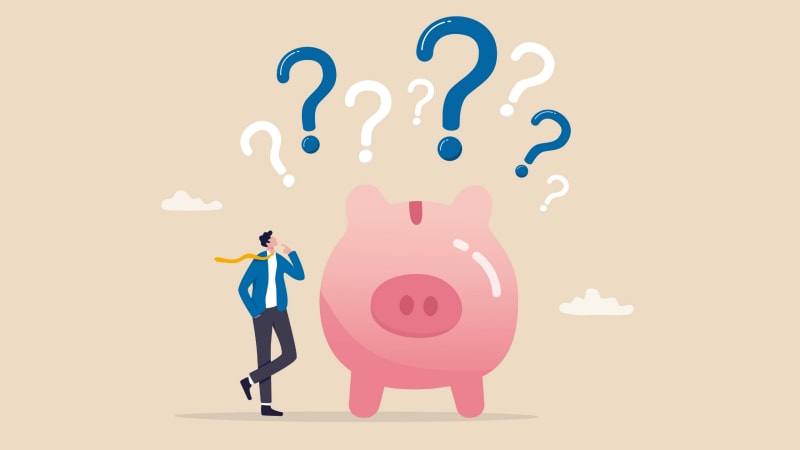Does wage garnishment affect your credit score?

Wage garnishments do not appear on your credit report, and as such, they may only have an indirect impact on your credit score. You can verify this when you look at your credit report and free credit score provided by Experian™ when you enroll in Chase Credit Journey®.
Regardless of the effect on credit score, wage garnishments may be a sign of poor financial behavior, since they are often the result of multiple missed payments or failure to pay debts. In this article, you will learn about:
- Wage garnishments
- What qualifies you for wage garnishment
- Ways to handle garnishment of wages
- Whether garnished wages affect your credit
What is wage garnishment?
When money from your wages (paycheck) is withheld in order to help pay off missed payments or debts, this is known as wage garnishment. It is one of the final steps in the debt collections process. The funds may automatically be collected by a debt collections agency, credit card company, mortgage company or the government.
Wage garnishment does not always require a lawsuit to be executed. When it comes to credit card debt, there will have likely been several attempts already to collect the debt from you before garnishment happens—including through a collections agency. Once the garnishment has been put in place, it remains until the debt has been paid off or otherwise resolved.
What qualifies you for wage garnishment?
Wage garnishments are not an automatic response to missing just one payment; this typically happens after you’ve missed many payments and even after a collections agency tries to collect from you.
If you don’t oblige or appear in court, a judgment may be issued. Once judgement is passed, garnishment may begin. Going forward, a portion of each paycheck will be automatically deducted until your debt has been fully repaid. Keep in mind that wages can also include, but are not limited to:
- Commissions
- Profit sharing
- Referral and sign-on bonus
- Cash service awards
How to handle garnishment of wages
Garnishment generally lasts until you’ve fully repaid your debt. Because you are suddenly losing a portion of your income, you may need to re-budget and make necessary adjustments to meet your needs. Below are a few considerations to keep in mind when experiencing garnishment of wages:
- Be sure to check with your state-specific rules and exemptions to protect your assets. Each state has its own specific rules and laws about how the garnishments work.
- You may want to work towards creating a new budget and savings plan before your debt has been paid off.
- There are some government-protected funds that cannot be considered when it comes to wage garnishment, including 401K and IRA contributions.
- In some cases, you may have legal recourse that enables you to protest or dispute the garnishment. There are typically complexities involved so you may want to consult with an expert familiar with debt collection. It may be possible to make repayment plan arrangements with creditors or collectors depending on your situation.
How do garnished wages affect your credit?
By the time wage garnishment happens, your credit score may already be significantly impacted. This is due to the fact that payment history makes up a large portion of your credit score, so missing payments that lead to wage garnishment most probably knocked down your credit score.
While wage garnishments don’t appear on credit reports as derogatory marks, they can still impact your creditworthiness. Other line items can indicate your financial situation and hurt your score. For example, instead of seeing “wage garnishment” on your credit report, you may instead see defaults on debt after multiple missed payments.
Creditors may still report your delinquency and debt to the agencies or credit bureaus, and this can negatively impact your score. As a result, it can affect your ability to open new lines of credit, land favorable interest rates and more.
In summary
Having your wages garnished not only reduces your income, but it can have downstream effects on your credit score. If you’re working towards building back your credit after a wage garnishment, consider using the credit score improvement feature provided by Experian when you enroll in Credit Journey®. This tool will help break down actionable steps that you can start taking today to improve your credit score over time.



